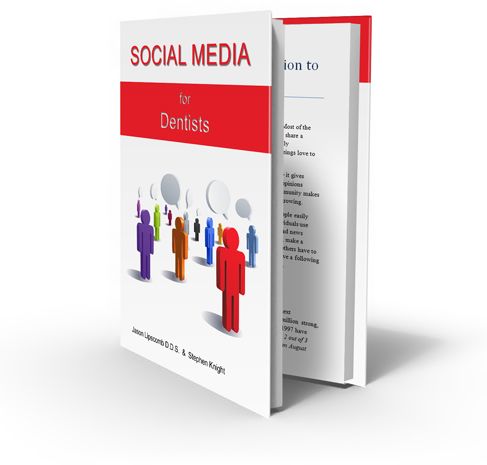 Oh no! You have a bad review on Google! What do you do now? The first thing to do is to not overreact. Many people feel that a bad review is a personal attack. Most bad reviews are posted by individuals that feel like they have been mistreated or that they did not receive the quality of service they expected. Bad reviews can be an opportunity to address a patient’s issues, and at the same time let others reading the reviews see that you are making an honest effort to address any problems.
Oh no! You have a bad review on Google! What do you do now? The first thing to do is to not overreact. Many people feel that a bad review is a personal attack. Most bad reviews are posted by individuals that feel like they have been mistreated or that they did not receive the quality of service they expected. Bad reviews can be an opportunity to address a patient’s issues, and at the same time let others reading the reviews see that you are making an honest effort to address any problems.
How important is it to monitor local reviews? Very important. In a recent report by Nielsen, Google said that 82% of the population uses local search and reviews and Yahoo says that there are over 100 million local searches performed monthly. Most prospective patients when searching for a new dentists in their area will perform a search with the name of the city and the word dentist.
A typical search in Google would look like this:
“Richmond dentist.” Google instantly will return a list of dentists, with other information such as location, phone number and reviews.
Most dentists are not even aware that they have reviews on the internet. Recently I visited my dermatologist. He asked me how I had found his practice, and I told him I used Google to find his practice. I told him that I had read his reviews and that they had all been good, so I scheduled an appointment with him. He was shocked, he didn’t even realize that he had any reviews online. Dentists need to be aware that there are online conversations going on every day about them and their practice, whether they want to be involved or not.
So, what do you do if you have a bad review? Many dentists will ignore the review and hope that others will too. Responding to bad reviews can be a slippery slope. Psychologists advise that you do not go toe to toe against someone that has posted a bad review. Visitors reading the reviews do not want to see a public disagreement, and it will only draw more attention to the negative post. Instead approach the bad review in a positive nature.
- Do not get angry, do not get emotional, do not start a public argument.
- Acknowledge the issue and rather than becoming defensive offer an explanation.
- Validate the patient’s concerns and respond in a professional manner.
- Let everyone know that everything that you do is focused on a high-quality experience for each patient and that when problems do surface, you take them seriously and work hard to understand the root causes.
- Do not continually re-address the problem. Address it and move on. As more positive reviews come in, the bad review will be pushed further down the list.
- Continually focus on doing great work, and building up positive reviews. Today people are very savvy, having a bad review or two adds validity to your reviews. Address them correctly and you will appear to be level headed, active and concerned.
Every once in a while extreme measures may have to be taken. It’s not very often that this occurs, however there are some very unscrupulous people out there. There was a dentist near me that had allegations of sexual misconduct with a patient on their Google reviews. The dentist was a "head in the sand" type, and did not even know it was out there.
Reviews alleging malpractice and illegal actions need to be dealt with quickly. They are terrible rumor starters and can do serious damage even after they are gone. Contact legal counsel and the host site and address them immediately. Taking extreme measures can also be tricky. I have seen several reviews of dentists which say "Dr. XYZ's lawyer contacted me today and said to remove this content" or "now they are threatening legal action." Some reviewers just don't know when to quit! So use caution, you may end up with more than you bargained for. Remember, controversy draws attention.
The important thing to remember is this, if you continually do good work and continue to get good reviews, people will quickly move past a bad review or two. Your focus should continually be on improving the quality of your practice and providing exceptional service. It’s the same with all facets of life, people reward quality, this goes for quality food, quality products and quality service. I cannot count the number of times that I have seen individuals on Twitter and Facebook recommend a movie, a book or a restaurant. Actually 25% of all conversations on social media networks evolve around a person’s recommendation of a product or a service.
The main thing to remember is now, more than ever, people have a voice and they are eager to be heard. People are just as anxious to leave a good review as they are to leave a bad review. Bad reviews are generally made when a patient feels that they have been mistreated or did not receive the service they believe they deserved. One dentist that I worked with spent thousands of dollars each month for high search engine rankings. However, his local reviews said things like “I felt like an automobile, the dentist’s assistants kept pushing service upgrades. Remember that your patients now have a very powerful voice.
Speaking of powerful voices, it is important to remember that your patients now have many social networks where they talk about their daily lives. Thousands of posts go out everyday on Twitter and Facebook from people’s mobile phones. I’ve seen a number of posts on Twitter from people sitting in the dentists chair. As professionals we have to remember that we live in a transparent world of mobile texting, instant photo upload and viral sharing. Embrace this opportunity to open the lines of communication with your patients in order to improve their experience and expand your practice.
Jason T. Lipscomb is a general dentist in Richmond, VA and a co-author of Social Media for Dentists. Dr. Lipscomb has developed the methods used by Social Media for Dentists after several years of private practice. He maintains a unique perspective on dental marketing by operating two busy practices and researching social media practices. Social Media for Dentists is one of the only dental specific Social Media marketing books. Social Media for Dentists L.L.C. offers hands on training to dentists all over the country.

Bad Reviews...What Can I do?